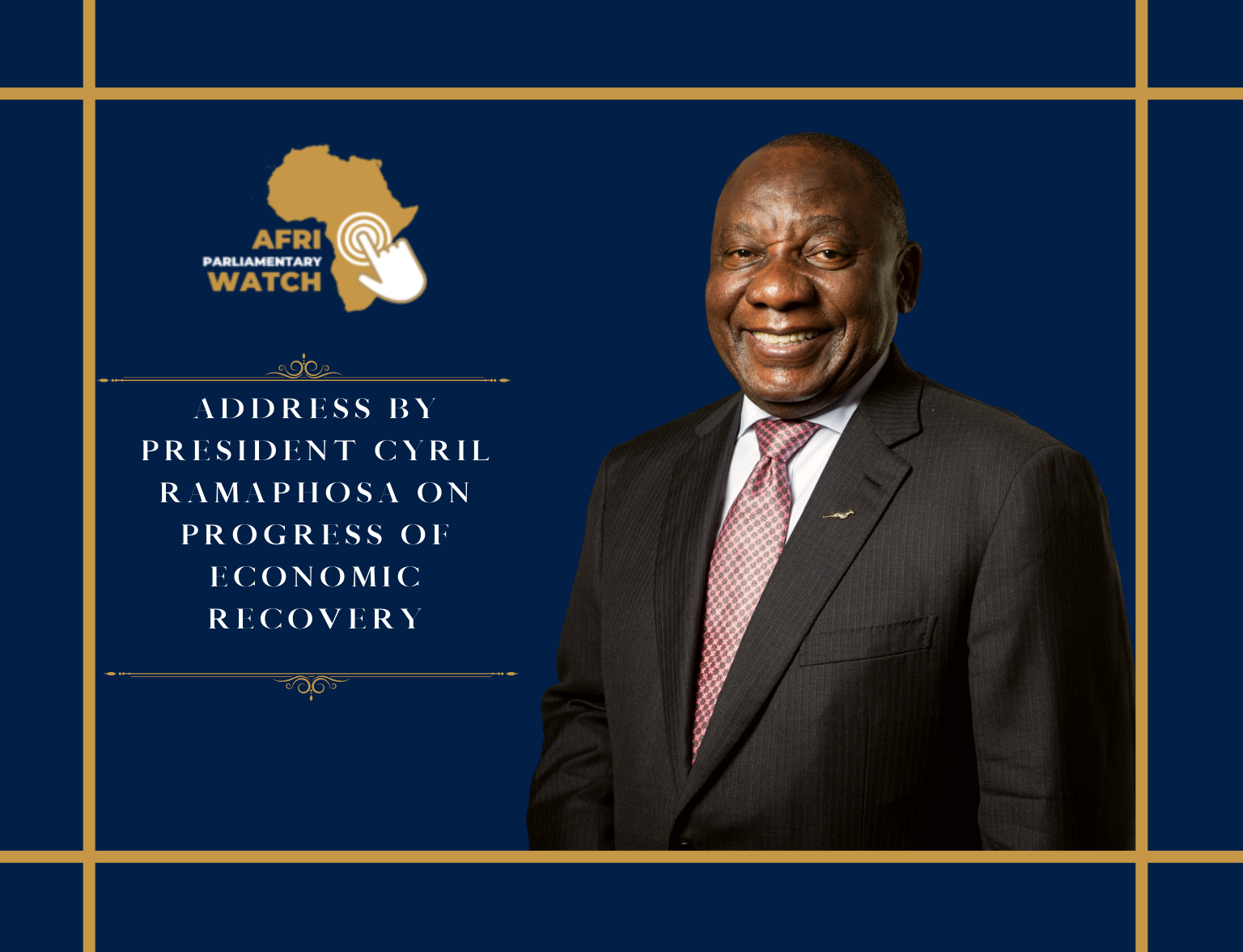On October 30, 2023, President Cyril Ramaphosa delivered an address to South Africans, stressing the country’s economic recovery efforts as well as the achievements of the Springboks, the country’s national rugby team. The triumph was achieved by resilience and commitment, as displayed by the Springboks and Proteas. Banyana Banyana had previously won the Women’s Africa Cup of Nations and advanced to the knockout stages of the FIFA Women’s World Cup.
The president also emphasised the country’s economic recovery, as well as the achievements of human development since the dawn of democracy. Housing, access to power, water, sanitation, and other basic needs, as well as greater access to healthcare and education, have lifted millions of South Africans out of poverty. More work, however, is required to make additional advances.
In addition, the president discussed the Economic Reconstruction and Recovery Plan, which aimed to rebuild the economy and create jobs in the aftermath of the pandemic. Many stakeholders supported the proposal, which is supported by the National Development proposal. Despite problems such as slow economic development, corruption, and global pressures, evidence of progress can be seen.
Over the last two years, the number of people working has climbed by two million, bringing employment levels back to pre-pandemic levels. Expanding social protection and public employment, such as the R350 grant and the Presidential Employment Stimulus, were key components of the reconstruction and recovery plan. Over 4 million young people have signed up for the SAYouth online platform, which offers opportunities for both studying and earning.
South Africa’s Reconstruction and Recovery Plan focuses on rebuilding the country’s infrastructure through increased investment in maintenance and new project construction. Several major infrastructure projects are currently underway, boosting economic activity and employment development. The South African Passenger train Agency has restored operations on 26 of 40 commuter train corridors, with R50 billion set to be spent over the next three years to modernise the passenger rail network. The Lesotho Highlands Water Project and the Mzimvubu Water Project in the Eastern Cape are both in the planning stages.
Efforts are being undertaken to eliminate load shedding, and there has been a measurable decrease in load shedding. The Energy Action Plan has had favourable outcomes, and regulatory reforms have allowed for a significant rise in private investment in energy generation. The implementation of tax breaks and finance channels has resulted in a doubling of rooftop solar installations.
South Africa’s logistics infrastructure is being rebuilt to world-class standards, allowing it to export commodities to worldwide markets. The National Logistics Crisis Committee is in charge of overseeing actions to improve the performance and efficiency of the system. In the long run, competition in operations such as power and logistics will increase efficiency and lower prices.
The South African Police Service has formed 20 Economic Infrastructure Task Teams to safeguard important infrastructure and combat the “construction mafia.” In addition, the administration is striving to bring individuals responsible for state capture to justice and to improve coordination with important stakeholders.
South Africa is confronted with serious economic issues, such as poverty, inequality, and unemployment. The country’s economy is growing slowly, and government spending has outpaced receipts since the 2008 global financial crisis, despite no discernible improvement in economic growth. The government is enacting economic reforms to address municipal deficiencies and improve municipal services like as water, sanitation, energy, roads, and garbage collection. Institutional reforms are also being adopted, as is the professionalisation of senior municipal officials.
Sustained and inclusive growth necessitates a stable macroeconomic environment, and fiscal policy must be responsible. The government intends to achieve this trajectory in the Medium-Term Budget Policy Statement, which will be released on Wednesday. Health, education, law enforcement, and other important services shall be protected to the greatest extent practicable. Social grants and public employment programmes are critical for assisting vulnerable communities and alleviating poverty.
The National Senior Certificate exams for nearly one million students begin in 2023, and progress has been achieved in revamping the economy to make it more inclusive and generate higher growth rates. The country boasts a strong financial sector, an active civil society, a functioning democracy, an independent judiciary, and a sound macroeconomic framework supported by a capable National Treasury and Reserve Bank.
South Africa’s combined efforts are beginning to bear fruit in a variety of areas, and the government is convinced that by taking action now, it will overcome problems and develop a society that works for all of its people.




